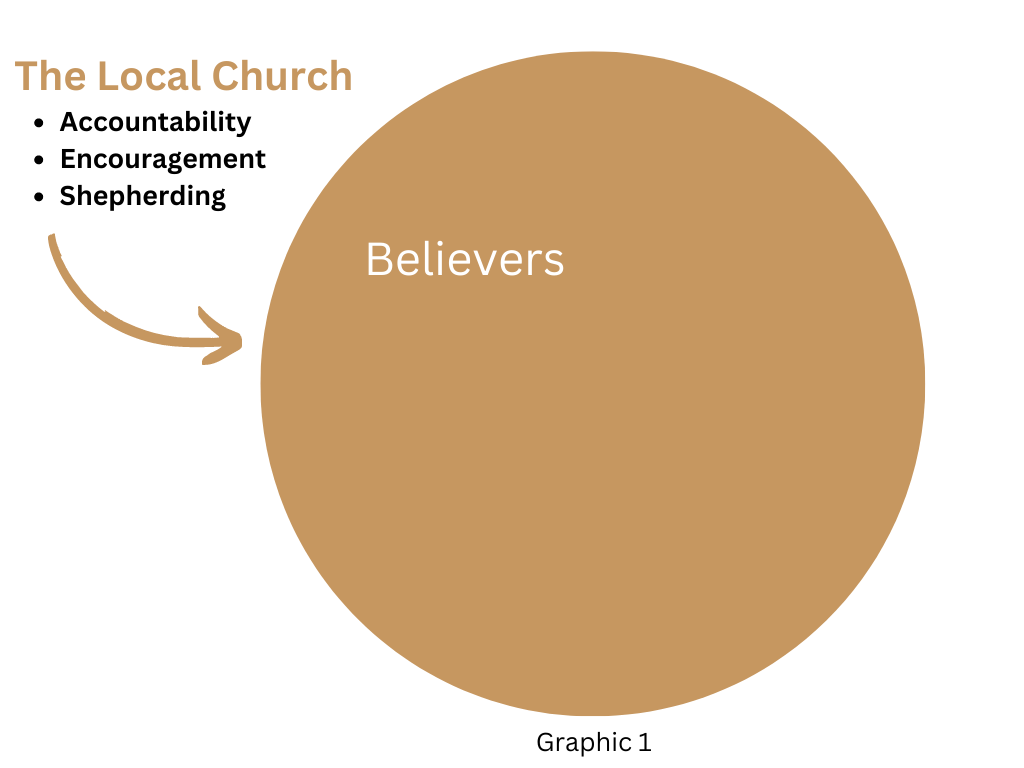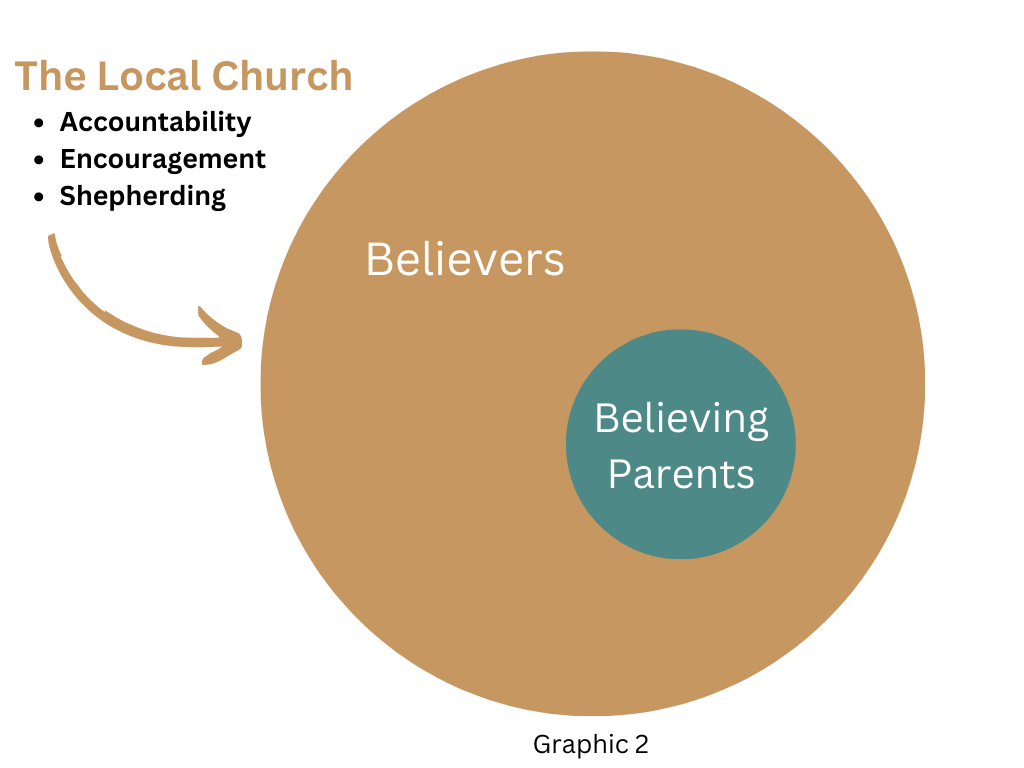
On October 23rd during the 10:45 service, Five Points will host its first ever Parent Commissioning service. So what in the world is it? Before we answer that question, we need to answer two others: (1) What biblical responsibilities do parents have toward their children? And (2) how does that relate to the local church?
What Biblical Responsibilities Do Parents Have Toward Their Children?
Deuteronomy 6:4-9 is a great place for us to start. But before we dig in, we need a bit of context. Deuteronomy is a record of Moses' parting address to Israel as they prepare to go in and take the land that was promised to them by God (cf. Genesis 12:1-3). And throughout the book, he lists out a number of responsibilities that they had as God's covenant people. It is in this larger context that Moses describes the biblical role parents were to have in raising their children: They were to teach them about the Lord.
4“Hear, O Israel: The Lord our God, the Lord is one. 5You shall love the Lord your God with all your heart and with all your soul and with all your might. 6And these words that I command you today shall be on your heart. 7You shall teach them diligently to your children, and shall talk of them when you sit in your house, and when you walk by the way, and when you lie down, and when you rise. 8You shall bind them as a sign on your hand, and they shall be as frontlets between your eyes. 9You shall write them on the doorposts of your house and on your gates."-Deuteronomy 6:4-9 ESV
Parents' Primary Responsibility: Teach Their Children About The Lord In The Context of Everyday Life By Word & Example
Again, parents who belonged to God's covenant people were to teach their children about their covenant God by word and example. More specifically, parents had the responsibiltiy to teach their children God's Word in the context of everyday life. They were to do so, first, by treasuring God's Word for themselves. That's what Moses is getting at in verse 5-6. Parents were to love the Lord and they were to evidence this love by treasuring His words and taking them to heart for themselves. In verse 7 we see that the overflow of their love for God's Word was to spill out toward their children. They had the responsibility to diligently teach it to their children. When? All the time. When they were in the house sitting down or outside walking on a road. When they lay down at night and when they rose in the morning.
Now that was true for God's people in the Old Testament. But what about the New Testament? The same principle applies. There are three key evidences for this: First, Jesus shows us the value of children when He told His disciples to let the children come to Him (Matt. 19:13-14). Jesus wanted little children to know Him. One of the implications of this for Christian parents is that they ought to do everything they can to bring their children to Jesus. How so? In the same way as we discovered from Deuteronomy 6. By word and example in the context of everyday life. They begin by treasuring Jesus in their own hearts. That's the starting point. And the overflow of their love for Jesus ought to spill over to their children. That means Christian parents regularly engage in family worship where the Bible is read and prayers are prayed. It also means that they take every opportunity to teach their children about Him in the normal routines of life. Maybe at the zoo a parent reminds his/her child that it is God who made all these cool animals and who will one day make all things new again (Rev. 21-22). Second, throughout the New Testament letters, families are routinely addressed. For example, in his letter to the church at Ephesus, the apostle Paul lays out how families should conduct themselves (Eph. 5:22-6:4; cf. Col. 3:18-25). Third, one of the qualifications of a pastor-elder is that he care well for his own family (1 Tim. 3:4). The reason Paul gives is because if a man does not know how to care for his family, how will he care for the family of God (1 Tim. 3:5)? And why must a pastor-elder meet this qualification? Because one of his roles is to be an example to the rest of the church in how to lead a godly life. The implication here is that Christian families should live in a way that is distinctive from the world. That is the role of parents.
So, what is the biblical role of Christian parents to their children? They are to teach their children about the Lord in the context of everyday life by word and example. Okay, that's all fine and good, but how does that relate to the local church?
How Does All Of This Relate To The Local Church?
Here's the good news: Christian parents aren't called to do this alone. God's intent for every follower of Christ, regardless of whether they have children or not, is that they become a part of a local church (1). The reason is because the local church is where we commit to hold each other accountable to follow Jesus (Matt. 18:15-20; 1 Cor. 5; Phil. 1:27; Heb. 3:12-13). It's also where we encourage and build each other up (1 Thess. 5:11; Heb. 10:24-25). And finally, it's where we are shepherded by pastors who are charged with keeping watch over our souls (Acts 20:28; Heb. 13:17; 1 Pet. 5:1-4). This can be illustrated in Graphic 1.  The Local Church Provides Believers With Accountability, Encouragement, & Shepherding
The Local Church Provides Believers With Accountability, Encouragement, & Shepherding
The church is intended by God to provide accountability, encouragement, and shepherding for the believer. So, how do believing parents relate to the local church? In the same way (see Graphic 2 below): By providing our parents with accountability, encouragement, and shepherding. As a faith family, we want to hold our parents accountable to raising their children in a way that is pleasing to the Lord. And we want to encourage and shepherd them toward this with tools, workshops, counseling, and other resources.
Therefore, The Local Church Also Provides Believing Parents With Accountability, Encouragement, & Shepherding
Now how does a person receive this accountability, encouragement, and shepherding? They give us permission to provide it. And the way they communicate that is by commiting to the church through membership. Formal membership is how a person clearly indicates that they desire to be a part of our faith family with all that entails. Otherwise, there remains a cloudiness around whether the person truly wants to receive all that we have discussed above. What this means is that our Parent Commissioning services are reserved for those parents who have committed to our faith family through membership.
Our Parent Commissioning service is where we remind Moms and Dads of their biblical responsibilities toward their children and where we also remember our responsibilities toward them as their church family. And I can't express just how excited I am for us to do this together on October 23rd at the 10:45 service. If you have questions or would like to participate, you can email me or Ms. Tommie. We would love to hear from you!
Warmly,
Pastor Drew
_____________________
(1) It is commonly argued that the thief on the cross was never a member of a church, but still went to heaven (Luke 23:39-43). And that is certainly true! But here is the difference: He was providentially hindered from becoming a part of a church. If someone embraces Christ by faith at the moment preceding their death, they are not held accountable by God to become a part of a local church (the same could also be said for someone who comes to faith in Christ in a global context where a local church is not yet available). For those of us who are not providentially hindered, however, the teaching of Hebrews 10:24-25 applies.